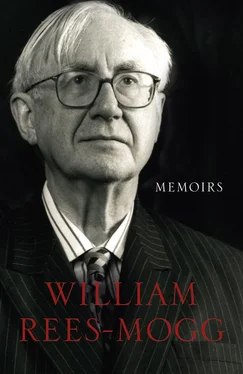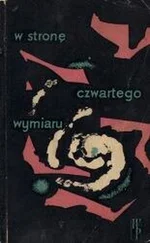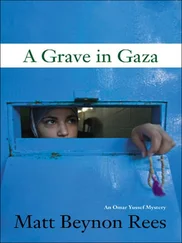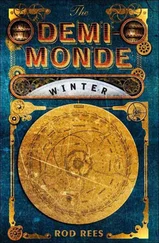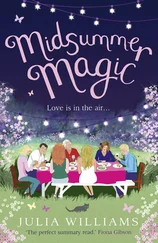By the end of my second term in the Classical Under Sixth it became clear to me that I was never going to make a classical scholar, even of the humblest kind. Nevertheless, there had to be a battle if I was to change my specialization. The classical side of Brooke Hall, which is the masters’ common room at Charterhouse, would not easily give up. Arrowsmith advised strongly against a change; Russell, as was his nature, was less dogmatic; Irvine opposed it though with decreasing confidence. My housemaster, Jasper Holmes, was a scientist, but was well aware of the strength of the classical side in Brooke Hall, from which he had sometimes suffered his own reverses in Charterhouse politics.
I wanted to switch to the History Under Sixth, which would lead naturally to Robert Birley’s History Sixth. That in its turn would lead to reading history at Oxford. I was increasingly strongly convinced that that was what I ought to do. However bad I was at the classics, I was good at writing essays, and had always read history.
During the period of this minor, but, to me, crucial, struggle, an incident occurred which nearly led to my changing my house as well as my form. There was a Jewish boy in Verites whose family background was unhappy, and whose conduct was erratic. He was so unhappy that at one time he tried to set fire to the school pillar box. He was nonetheless intelligent, and he was a friend of mine. I remember once going to a meal with his mother. Perhaps she had pressed him to bring a friend home. I knew therefore that his home was not happy, and that he resented about equally the authority of Charterhouse and that of his non-Jewish stepfather who, even to me, lacked charm.
In Verites he was unpopular. No doubt there was anti-Semitism in it. He was accused of being dirty, of not having taken a bath for a long time. This was not all that unusual; hot water was rationed and we only got one bath a week, so we must all have been pretty grubby. A group of sixteen-year-olds dragged him to the bathroom, stripped him and put him in the bath.
I was present, protesting and horrified at what was happening. I was not able to prevent it, though my protests may have helped to shorten the ordeal. I went to Holmes, as the house-master, who took less action against the bullies than I thought appropriate. I wrote to my mother, saying that I could not tolerate staying in a house where this sort of thing could happen. In this there was no doubt some desire to take advantage of the situation for my own ends, as well as a genuine horror and shock at the Jewish boy’s humiliation. I suggested that I should be transferred to Birley’s house, Saunderites.
Strangely, it did not occur to any of us that there was a parallel between the ritual humiliation of my friend, who had come to hate Charterhouse, and Nazi anti-Semitism. The event happened, after all, in 1943. I did raise the issue of bullying and the issue of anti-Semitism. I did not myself raise the parallel of Nazi anti-Semitism. Neither Holmes, Birley, nor, indeed, the bullies saw it in that way. The bullies themselves were not particularly thuggish boys, as I remember. They seemed to be acting out some very primitive role, like chimpanzees setting on a weakened companion in the rainforest.
I am not sure how closely my bid to move house, which failed, and my bid to move from Classics to History, which succeeded, were linked. I do not regret having stayed in Verites; it was not my spiritual home, and Holmes was not a particularly sympathetic housemaster, but we had a mutual respect, and I was certainly more trouble to him than he was to me. Later, when Birley made me Head of the School, Holmes refused to make me Head of Verites, a disjunction of office which had last happened when William Beveridge, later the author of the Beveridge Report, was Head of the School. That, too, suited me perfectly well. I liked the prestige of being Head of the School, but was happy to forgo the chore of running Verites.
The move to studying history was a joy and a turning point, one of the crucial decisions of my life, all the better for having been achieved after a struggle. Robert Birley, later to become the head of education in the British Zone of Germany and Headmaster of Eton, was an inspired teacher of history for a sixth-form student. Even then, I took a Tory view of the world, more so than I do now, and was always willing to argue the Tory case. Disraeli was right; Gladstone was wrong, even about Ireland. Birley found that amusing; he was himself a man of liberal views, later to distinguish himself in the struggle against apartheid in South African education. Some of his liberalism was bound to rub off on me, as it did on James Prior, who was in the same History Sixth, and as it had on Edward Boyle, an earlier Eton pupil of Birley’s, who, as a rising Conservative Minister, resigned over Suez.
The summer of 1944, when I had my sixteenth birthday, was a happier one. The depression was still lurking, but was seldom too unpleasant when the sun was shining and there was good cricket to be watched on the Green. My closest friend at Charterhouse, one of the closest friends I have ever had, was Clive Wigram. Clive was the son of a distinguished Jewish doctor, who had cared for Asquith in his last illness. Because he was Jewish, Clive had been sent to the United States early in the war, but his father fell ill and he came back in 1942, earlier than most of the refugee children. He was more mature than the rest of us, and was a year older than I was; he found it difficult to take schoolboy life seriously, and even Robert Birley misread his character as a result. Birley mistook Clive’s maturity for cynicism.
Clive and I would go for gentle walks in the Charterhouse grounds. On one such walk we were discussing the fact that we had not been invited to join the Literary and Political Society, an ancient Charterhouse society. The reason for our exclusion was that the Lit and Pol was run by Harry Iredale, a senior French master with snowy white hair, who disliked us; he had never been made a housemaster because of his progressive views, which were largely derived from George Bernard Shaw. He saw Clive and myself as sinister and reactionary; we saw him as pretentious and superficial. The poor man had suffered a tragedy, some time in the later 1920s, when he had taken a boy out punting on the River Way. The boy had fallen overboard and been drowned.
As we walked beside Under Green, the idea came to us of setting up our own literary society. I am not sure who had the idea first; it came into our heads together. We thought it should cover much the same subjects as the Lit and Pol, but from a more conservative point of view. We decided that it should be set up so as to capture the high ground of Carthusian prestige. We would match Iredale by two patrons from Brooke Hall; one was to be Russell, always a willing co-conspirator in school politics, the other Mr Thomson, the senior science master. He introduced me to Sung Dynasty Chinese pottery, of which he had a fine collection.
Clive and I discussed an appropriate name, and decided to call it the Thackeray Society. William Makepeace Thackeray, the Victorian novelist, was one of the most eminent of the Carthusian authors; there is a long-standing Thackeray Prize for an English essay, which I was later to win, narrowly beating Simon Raven into second place. We thought that the school would soon accept the Thackeray Society as an established institution.
I remember some of the early meetings the society had, usually in Russell’s drawing room at Hodgsonites. Clive and I had selected the best of the next year’s group of boys, most of them scholars. One of them was Dick Taverne, the brightest of the scholars of the year below mine. We took entrants a year younger than the Lit and Pol, during their summer in the fifth form, so that we could catch the best candidates before the Lit and Pol could get hold of them.
Читать дальше
